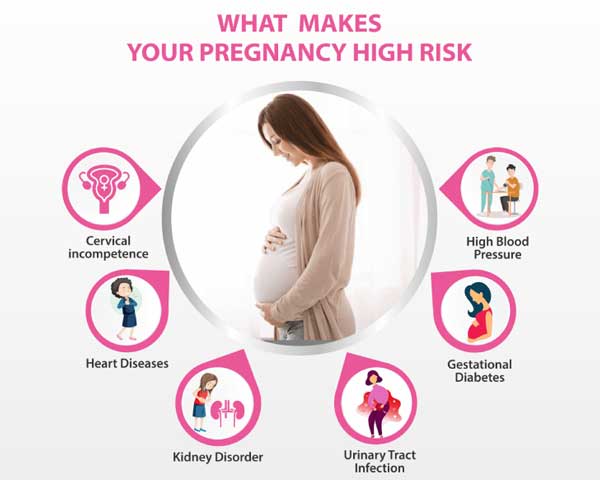High Risk Pregnancy
Home / High Risk Pregnancy
Home / High Risk Pregnancy

A high-risk pregnancy is characterized by conditions that pose an elevated threat to the well-being of the mother or the developing fetus. Various factors contribute to the classification of a pregnancy as high-risk, encompassing maternal age, pre-existing health issues, and complications arising during gestation.
Maternal age plays a pivotal role, with advanced maternal age (typically considered as 35 years or older) associated with an increased likelihood of complications. Women in this age bracket may face a higher risk of chromosomal abnormalities and conditions such as gestational diabetes and preeclampsia.
Pre-existing medical conditions, such as hypertension, diabetes, or autoimmune disorders, can heighten the complexity of a pregnancy. Managing these conditions effectively during gestation becomes crucial to mitigate potential risks and ensure optimal health outcomes for both the mother and the baby.
Complications that arise during pregnancy, such as gestational diabetes, preeclampsia, or placenta previa, contribute to the high-risk categorization. These conditions require close monitoring and specialized care to address potential challenges promptly.
To navigate a high-risk pregnancy successfully, regular prenatal visits are imperative. These appointments allow healthcare professionals to closely monitor the progress of the pregnancy, identify any emerging issues, and implement timely interventions. Additionally, expectant mothers are advised to adhere strictly to medical advice, maintain a healthy lifestyle, and prioritize self-care.
In conclusion, a high-risk pregnancy necessitates heightened medical attention and proactive management to safeguard the well-being of both the mother and the baby. Diligent monitoring, effective communication with healthcare providers, and adherence to recommended protocols are essential components of ensuring a safe and healthy pregnancy in high-risk situations. If you have further inquiries or require more detailed information, please feel free to ask.